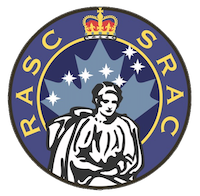Dr. Phillip James ("Jim") Edwin Peebles is a native of Winnipeg and a graduate of the University of Manitoba (B.Sc. in physics, 1958). He received his Ph.D. from Princeton University in 1962, and currently is a professor of physics at Princeton. In the mid-1960s, he and his colleagues predicted that thermal electromagnetic radiation from the very early Universe should be detectable by radio telescopes, that this radiation should be isotropic, and that it should have the spectrum of a black body only a few degrees above absolute zero. Coincidentally, about the same time (in 1965), Penzias and Wilson of the Bell Telephone Laboratories accidentally discovered this radiation. Dr. Peebles has investigated characteristics of the radiation and the clustering of galaxies. He has calculated the universal abundances of helium and other light elements, demonstrating agreement between Big Bang theory and observation. His two books on physical cosmology had a significant impact in convincing physicists that the time had come to study cosmology as a respectable branch of physics. He was elected a Fellow of the Royal Society in 1982.
Professor Peebles was the joint recipient of the The Nobel Prize in Physics 2019, "for contributions to our understanding of the evolution of the universe and Earth's place in the cosmos", with one half awarded to him "for theoretical discoveries in physical cosmology", and the other half going jointly to Michel Mayor and Didier Queloz "for the discovery of an exoplanet orbiting a solar-type star". Professor Peebles' Cosmology’s Century: An Inside History of Our Modern Understanding of the Universe is scheduled to appear later in that year.

